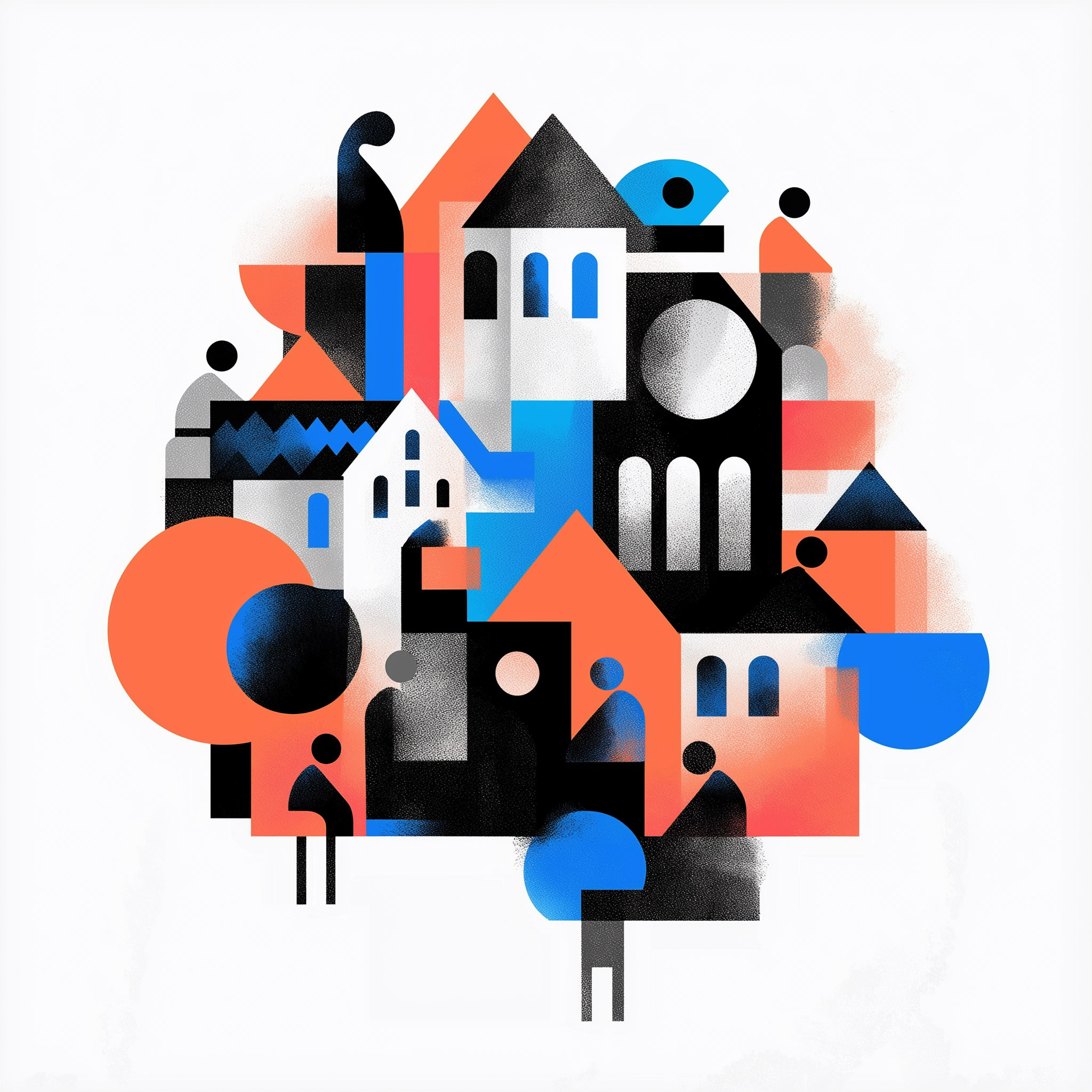Kate Downing Khaled | Founder & CEO
Have I taken a minute to introduce myself?
My name is Kate Downing Khaled, I use she/her pronouns, or even better, just use my name. I am a Muslim American woman, a firstborn daughter, a Canadian, a millennial, and a mother of four.
My family is made up of scientists, academics, educators, and artists, deeply rooted in Saint Paul and Montreal. I am connected to a community of Muslim women, and multicultural leaders who love to build new things.
My purpose in this group is to show you that new futures are not only possible, but they are also inevitable, and they can — and must — be beautiful.
I’m also here to show you the power of a collective introduction – which you just read!
To collaborate successfully, we all need much more context than the standard “name, pronouns, job title” we rattle off again and again.
Instead, start to know your collaborators on a human level by beginning collaborations with a collective introduction.
Here’s the simple template my team uses to kick off new design projects with all sorts of friends and clients:
My name is ______________ (pronouns). My family is _______________. My ancestors were from ________________. I am connected to _______________ (communities) by ____________ (type of relationship). My purpose in this group is to _____________.
How often do you share these foundational truths about yourself at work?
If you work in a corporate setting, I’m guessing the answer might be: “Not ever!” And you’re not alone.
Credentials such as degrees, where we went to school, and our job titles are our go-to introduction strategy for business meetings.
But does knowing that I have a master’s degree in public health really tell you anything about what bold ideas I might bring to the table?
And if I don’t have lived experience in the problem our group is tackling, my degree lacks the specificity that equitable solutions require.
Unlike in white-dominant spaces like corporate America, Indigenous community members have been introducing themselves in relationship to their communities for generations. You can listen to Allana McDougall, an Indigenous Affairs video journalist, introduce herself and share more about this practice in this brief video. She says: “My hope is that when I’m seen, my community is seen too.”
Our origins, our families, and the communities we’re connected to reveal crucial context about who we are and where we can best contribute. They anchor us in our shared humanity.
They’re also the source of wisdom we need for bold transformation. We can ALL tap into these parts of ourselves to build something beautiful, no matter our job title.
Because if we want to come up with beautiful new ideas that change systems, we can’t do things the way we’ve always done. And that includes introductions.
Now, it’s your turn! Use our collective introduction template during your next group collaboration – and let me know how it goes!
P.S. Our new interactive workbook has even more tips for collaborative engagement – send it to a friend who’s looking to gather actionable community insights.
